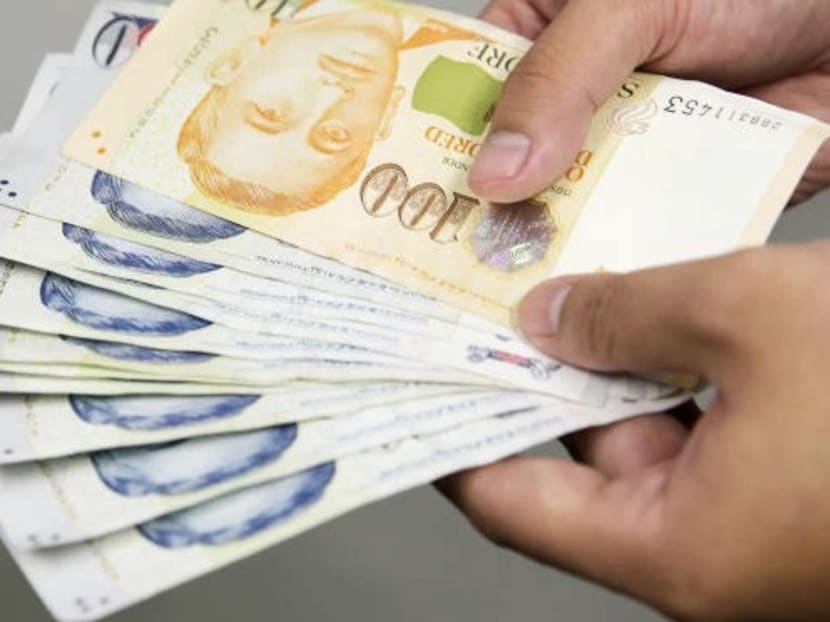How much cash do you need
Just after Chinese New Year, Rakuten surprised about 30 of its employees in Singapore by telling them they were being made redundant and having them leave the office immediately. Over the last couple of months, employees at Shell, Barclays, Yahoo and Resorts World Sentosa have faced redundancies too. While some of these people may have found a new role right away, a key question for others is how to pay the bills until they find a new job.

TODAY file photo
Just after Chinese New Year, Rakuten surprised about 30 of its employees in Singapore by telling them they were being made redundant and having them leave the office immediately. Over the last couple of months, employees at Shell, Barclays, Yahoo and Resorts World Sentosa have faced redundancies too. While some of these people may have found a new role right away, a key question for others is how to pay the bills until they find a new job.
HOW MUCH CASH IS ENOUGH
Experts suggest keeping about six months’ worth of expenses available for just such a situation.
Investment management firm Vanguard says most experts believe you should have enough money in your emergency fund to cover at least three to six months’ of living expenses, for instance, and some experts suggest even more. AXA suggests that since we often hear cases of friends or relatives falling on tough times, such as an illness like cancer or being retrenched, “the usual recommended emergency fund should be large enough to provide for at least six to 12 months of living expenses”.
Factors that affect how much to save include how secure your job is, how marketable your skills are, and the likelihood of healthcare or other emergencies.
The reason for saving, as personal finance portal MoneySmart explained, is that building an emergency fund gives a financial “buffer” to pay out-of-pocket expenses. “You don’t have to rely on loans or credit cards to cover any financial emergency, from your home loan repayment to your phone bill.”
Those recommendations tally with Ministry of Manpower data, which recently showed that 54 per cent of people made redundant found “re-entry into employment” within six months and 67 per cent within 12 months.
They also fit with Singaporeans’ current practices and goals. The Financial Planning Standard Board’s 2015 Singapore Survey showed that 55 per cent of Singaporeans say building savings or an “emergency” fund is one of their top five priorities. The Blackrock Global Investor Pulse Survey also found that Singaporeans are generally risk-averse and need to have an average of seven months’ worth of salary in savings before feeling comfortable enough to invest.
HOW TO SAVE
While putting money aside may seem difficult, the UK Money Advice Service offers highly practical suggestions on how to set up an emergency fund. The first step is to estimate amounts for critical expenses such as food, housing, healthcare, utilities and transportation. Then, start saving by “stashing away smaller amounts on a regular basis, like every week. If you keep it up, over time you’ll eventually meet your goal”. Those funds should go into investments that are safe from market risk, easy to access and interest-bearing.
To make saving easier, financial advisor Suze Orman suggests opening a savings account and naming it something like My Emergency Fund, so you feel great knowing you are building security and also remind yourself of your goal. “Sure, it could take years to reach your goal,” Ms Orman advised. “The important issue is that you are starting to save today.”
It can also be beneficial to set up separate funds for unexpected expenses and for emergencies. University of Minnesota Extension Educator Susan Hooper noted a difference between “set aside savings”, for periodic expenses such as replacing a broken appliance or travelling to visit a sick relative, and ”emergency income savings”, to pay the mortgage and utilities if income stops for a few months. “This money could prevent eviction,” she said.
MAKING THE MOST OF THE CASH
One challenge, as MoneySmart noted, is that “savings accounts in Singapore tend to offer rather pathetic interest rates”. Even so, “you want to stick with a savings account for one major reason – liquidity. If you tie up your emergency funds in stocks, bonds or mutual funds, you’re not only putting your cash at risk if the market dips – you’re making it harder to get to your cash quickly if disaster strikes.”
A team led by Prairie View A&M University Faculty Member Janine Scott has a different view, however, as they found that keeping all of your emergency fund dollars in cash may be a bad idea, especially for more affluent investors. Their research showed that allocating six months of expenses to cash resulted in both lower overall wealth at retirement than investing that money in stock and bond funds, and also more frequent situations in which the fund failed to cover emergencies.
It may be preferable for some people, then, to put funds into an Exchange Traded Fund (ETF) that invests in short-term bonds or another investment that pays more yet is still immediately accessible and less volatile.
WHAT TO DO
While the amount to put into an emergency fund and where to keep the money may vary from person to person, it is essential to put money aside so you are prepared for any situation. Even though few of us expect or even want to think that we may be made redundant or face a healthcare scare anytime soon, being prepared for uncertainties can ensure that we don’t face even more calamities if an unexpected emergency does indeed happen.





